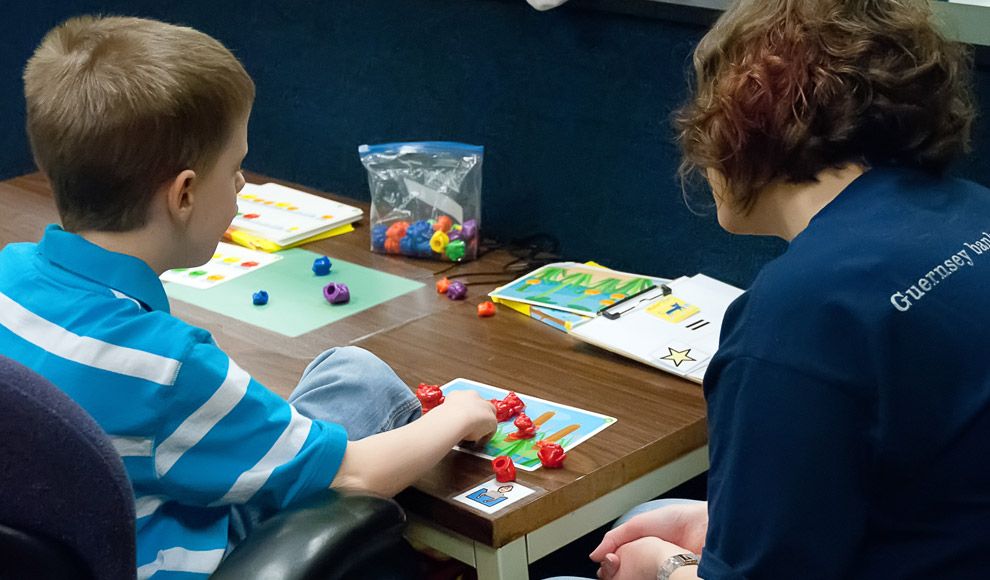Childhood-Autism spectrum test
Is My Child Autistic? Autism Spectrum Disorder Symptoms Test
Autism Spectrum Disorder (ASD) is a complex neurobiological disorder characterized by difficulty communicating verbally and relating socially to others, alongside a need to engage in repetitive behaviors or language. Early symptoms often noted by parents include delayed speech, restricted interests, not responding to his or her name, and avoiding eye contact. No two autistic children will have the same symptoms. Warning signs might be easy to see in one person, and virtually invisible in another.
Take the self-test below to find out whether your child’s symptoms resemble those of children diagnosed with autism spectrum disorder. A high score suggests it's appropriate to visit a trained healthcare professional for an evaluation.
This self-test was adapted from the Modified Checklist for Autism in Toddlers — Revised (M-CHAT-R) designed to screen the possibility of ASD, and from The Childhood Autism Spectrum Test or CAST (formerly the “Childhood Asperger’s Syndrome Test”), developed by ARC (the Autism Research Centre) at the University of Cambridge, for assessing the severity of autism spectrum symptoms in children. If you have concerns about possible ASD see a mental health professional. An accurate diagnosis can only be made through clinical evaluation. This screener is for personal use only.
Does your child come up to you spontaneously for a chat?
Very Often
Often
Sometimes
Rarely
Never
Does your child play pretend or make-believe? (For example, pretend to drink from an empty cup, talk on a phone, or feed a doll or stuffed animal?)
Very Often
Often
Sometimes
Rarely
Never
Does your child point with one finger to show you something interesting? (For example, pointing to an airplane in the sky or a big truck in the road. This is different from your child pointing to ask for something.)
Very Often
Often
Sometimes
Rarely
Never
If something new happens, does your child look at your face to see how you feel about it? (For example, if they hear a strange or funny noise, will they look at your face before reacting?)
Very Often
Often
Sometimes
Rarely
Never
Does your child try to copy what you do? (For example, do they wave bye-bye, clap, or make a funny noise when you do?)
Very Often
Often
Sometimes
Rarely
Never
Is it important to your child to fit in with his or her peer group?
Very Often
Often
Sometimes
Rarely
Never
If you point at something across the room, does your child look at it?
Very Often
Often
Sometimes
Rarely
Never
Does your child look you in the eye when you are talking to them, playing with them, or dressing them?
Very Often
Often
Sometimes
Rarely
Never
Does your child get upset by everyday noises? (For example, do they scream or cry over noise such as a vacuum cleaner or loud music?)
Very Often
Often
Sometimes
Rarely
Never
Does your child enjoy playing sports?
Very Often
Often
Sometimes
Rarely
Never
Does your child make unusual finger movements near their eyes? (For example, does your child wiggle their fingers close to their eyes?)
Very Often
Often
Sometimes
Rarely
Never
Does your child point with one finger to ask for something or to get help? (For example, pointing to a snack or toy that is out of reach.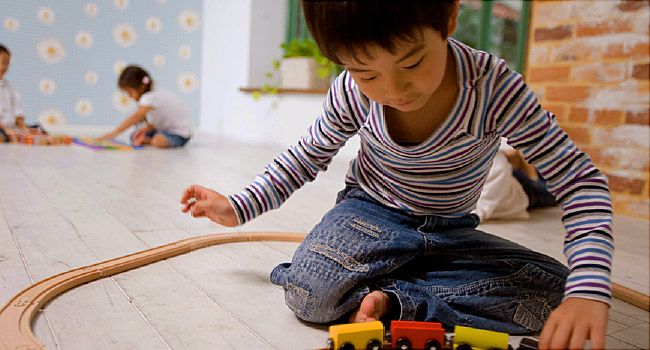 )
)
Very Often
Often
Sometimes
Rarely
Never
Does your child like climbing on things? (For example, furniture, playground equipment, or stairs)
Very Often
Often
Sometimes
Rarely
Never
Does your child like to do things over and over again, in the same way all the time?
Very Often
Often
Sometimes
Rarely
Never
Have you ever wondered if your child might be deaf?
Very Often
Often
Sometimes
Rarely
Never
Does your child appear to notice unusual details that others miss?
Very Often
Often
Sometimes
Rarely
Never
Does your child have difficulty understanding the rules for polite behavior?
Very Often
Often
Sometimes
Rarely
Never
Does your child respond when you call their name? (For example, do they look up, talk or babble, or stop what they are doing when you call their name?)
Very Often
Often
Sometimes
Rarely
Never
Does your child show you things by bringing them to you or holding them up for you to see — not to get help, but just to share? (For example, showing you a flower, a stuffed animal, or a toy truck. )
)
Very Often
Often
Sometimes
Rarely
Never
Does your child understand when you tell them to do something? (For example, if you don't point at the object, can your child understand "put the book on the chair" or "bring me the blanket?")
Very Often
Often
Sometimes
Rarely
Never
Does your child try to get you to watch them "perform" constantly? (For example, does your child look at you for praise, or say "look" or "watch me" a lot?)
Very Often
Often
Sometimes
Rarely
Never
If you turn your head to look at something, does your child look around to see what you are looking at?
Very Often
Often
Sometimes
Rarely
Never
Does your child appear to have an unusual memory for details?
Very Often
Often
Sometimes
Rarely
Never
Is your child interested in other children? (For example, does your child watch other children, smile at them, or go to them?)
Very Often
Often
Sometimes
Rarely
Never
Does your child like movement activities? (For example, being swung or bounced on your knee)
Very Often
Often
Sometimes
Rarely
Never
Can your child keep a two-way conversation going?
Very Often
Often
Sometimes
Rarely
Never
When you smile at your child, do they smile back at you?
Very Often
Often
Sometimes
Rarely
Never
Does your child join in playing games with other children easily?
Very Often
Often
Sometimes
Rarely
Never
Does your child have an interest that takes up so much time that they do little else?
Very Often
Often
Sometimes
Rarely
Never
Was your child speaking by 2 years old?
Yes
No
I Don't Know
(Optional) Would you like to receive your autism symptom test results — plus more helpful resources — via email from ADDitude?
Subscribe me to your newsletter!
Can’t see the self-test questions above? Click here to open this test in a new window.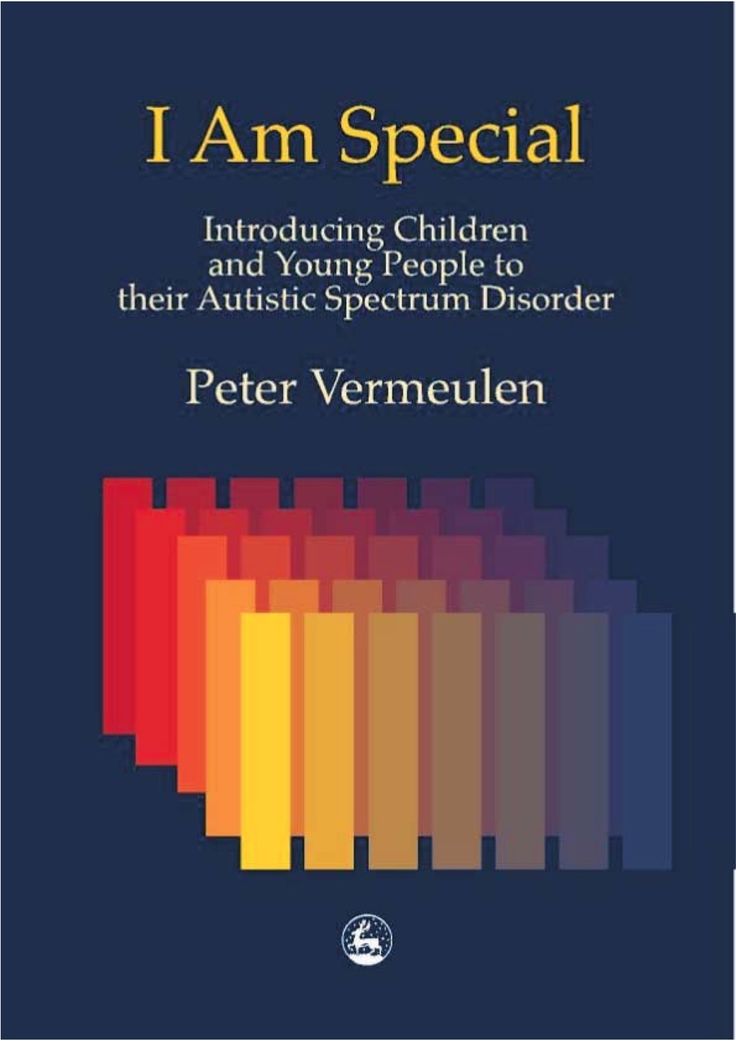
1. Take This Test: Full ADHD Symptoms Test for Children
2. Take This Test General Anxiety Disorder for Children
3. Take This Test Sensory Processing Disorder for Children
4. Learn Why Some Children on the Autism Spectrum Are Misdiagnosed with ADHD
5. Purchase “9 Conditions Often Diagnosed with ADHD”
FREE EBOOK
Get ADDitude’s free 42-page guide to the autism-ADHD link in children.
Get the eBook!
Previous Article Next Article
3 Minute Child Autism Test & Screening. Get Instant Results.
Autism Spectrum Disorder
Does my child have autism? This short quiz can help parents assess whether their child is experiencing symptoms common among children with autism spectrum disorder (ASD).
Medical ReviewerJohn Carosso, PsyD
Who Is This Child Autism Quiz For?
Answer the quiz questions below to see if your child could have autism.
Below is a list of questions that relate to life experiences common among children diagnosed with autism spectrum disorder (ASD). Please read each question carefully, and indicate how often your child has experienced the same or similar challenges in the past few months.
Please be aware that some behaviors are developmentally appropriate for your young child and are not signs of autism.
How Accurate Is It?
This quiz is NOT a diagnostic tool. Mental health disorders can only be diagnosed by licensed health care professionals.
Psycom believes assessments can be a valuable first step toward getting treatment. All too often people stop short of seeking help out of fear their concerns aren't legitimate or severe enough to warrant professional intervention.
How Is ASD Treated?
One of the biggest challenges is finding the most effective form of treatment.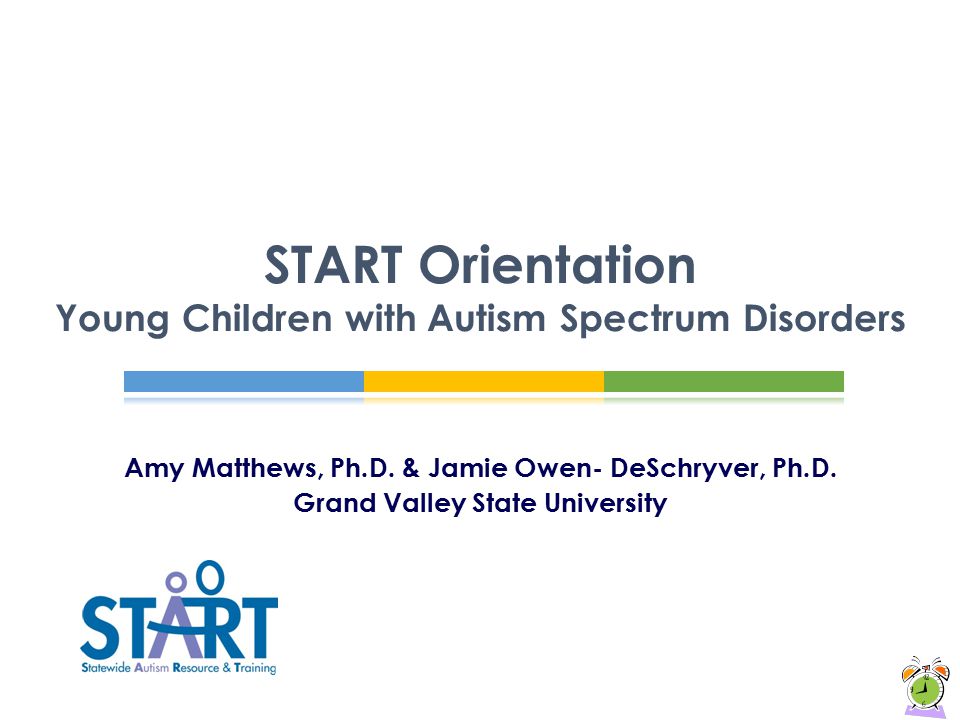 The choices seem endless and differentiating one from another can be daunting. Parents often rely on therapists to direct and administer treatment, but many parents want to learn as much as possible so they’re in the best position to help their child. The most common treatments include applied behavioral analysis, relationship-building strategies, speech/language, and occupational therapy, counseling, and social skills groups.
The choices seem endless and differentiating one from another can be daunting. Parents often rely on therapists to direct and administer treatment, but many parents want to learn as much as possible so they’re in the best position to help their child. The most common treatments include applied behavioral analysis, relationship-building strategies, speech/language, and occupational therapy, counseling, and social skills groups.
Your privacy is important to us. All results are completely anonymous.
Business solutions designed for organizations of all sizes - Alchemer. Please take my survey now
Child Autism FAQs
How to test a child for autism
You may ask your child’s healthcare provider to periodically check your child for signs of autism with a developmental screening test. A screening test alone will not result in a diagnosis but can indicate if your child should see a specialist. A developmental pediatrician, child psychologist or psychiatrist, pediatric neurologist, speech-language pathologist, occupational therapist, or other specialist can conduct a formal developmental evaluation.
Where to test your child for autism?
If you suspect your child may have autism spectrum disorder, start by raising your concerns with your child’s pediatrician. If your doctor determines that your child may be showing symptoms of autism, they will refer you to a specialist who treats children with autism spectrum disorder, such as a child psychiatrist or psychologist, pediatric neurologist, or developmental pediatrician, for an evaluation.
When to test a child for autism?
The American Academy of Pediatrics (AAP)recommends that all children be screened for autism spectrum disorder during their regular wellness visits at 18 and 24 months. A diagnosis by a specialist can be considered very reliable once the child is 2 years of age.
How early can I test my child for autism?
The American Academy of Pediatrics (AAP) recommends developmental and behavioral screening for all children during regular well-child visits at 9, 18, and 24 months. Screening specifically for autism begins at the 18-month visit. A diagnosis by a specialist can be considered very reliable once the child is 2 years of age.
A diagnosis by a specialist can be considered very reliable once the child is 2 years of age.
How do you talk with your child about their autism diagnosis?
It can be hard to decide what and how much information to share when talking to your child about their autism diagnosis. Setting a positive tone when discussing autism spectrum disorder and making sure you understand what your child is truly asking is very important. Establish a positive attitude about their differences from the outset, then answer their questions simply and honestly. If your child is of reading age, you may want to consider finding some children’s books on the topic of autism spectrum disorder to read with them.
What does an autism diagnosis mean for my child?
An autism diagnosis can result in some beneficial effects, but also comes with associated risks, disadvantages, and contraindications. Once your child is diagnosed with autism, you can expect your doctor to devise a specific treatment plan, comprised of therapy and/or medication to help your child function more easily in daily life.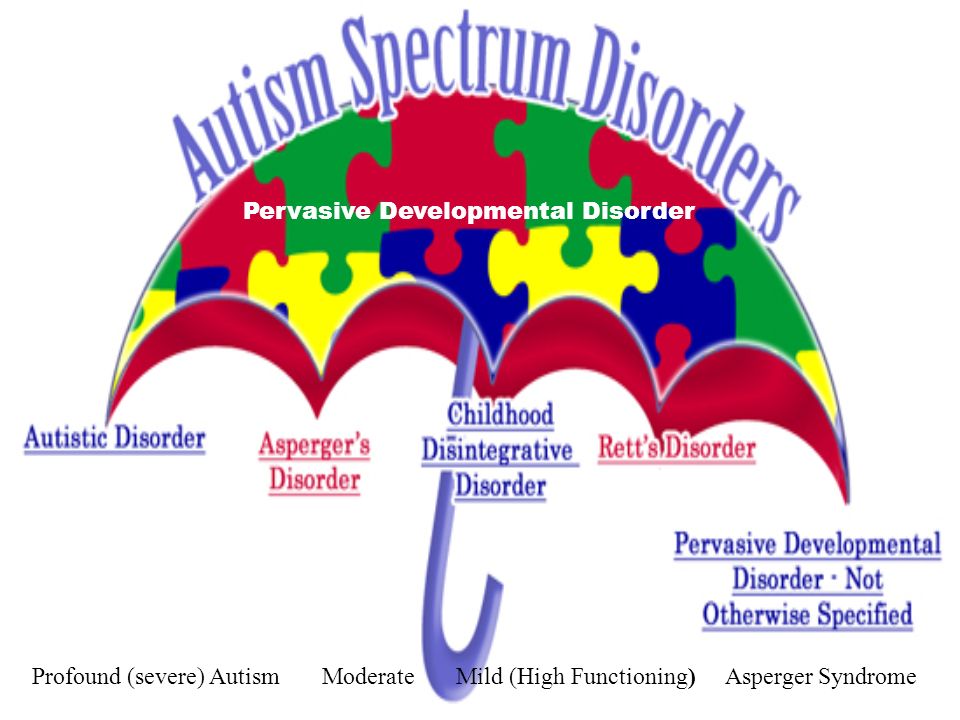 You can also seek specific guidance and support for your child to thrive at school. Despite these benefits, a diagnosis of autism also come with the risk of social stigmatization for the child. There is also a range of physical and mental-health conditions that frequently accompany autism including but not limited to: gastrointestinal problems, epilepsy, ADHD, anxiety, and depression.
You can also seek specific guidance and support for your child to thrive at school. Despite these benefits, a diagnosis of autism also come with the risk of social stigmatization for the child. There is also a range of physical and mental-health conditions that frequently accompany autism including but not limited to: gastrointestinal problems, epilepsy, ADHD, anxiety, and depression.
How to help your child after an autism diagnosis?
There are many things you can do to help a child with autism spectrum disorder. Start by ensuring their treatment plan is tailored according to their individual needs and work closely with the therapists, teachers and doctors involved to make sure you are following through with the therapy at home and school. It is also important to provide children with autism with a sense of structure in their lives. Create a detailed routine for your child and stick with it. You can also create consistency at home by reinforcing things the child may have learned in other settings and using positive reinforcement to reward good behavior.
Can a child be slightly autistic?
A child can be mildly autistic. Every child with autism spectrum disorder is unique and so symptoms may differ in severity and range between individuals. Children diagnosed as mildly autistic are unable to understand the body language or emotions of the people around them, but they do have normal intelligence and can conduct their daily activities.
What can mimic autism?
Developmental delays (when a child is unable to do something by a certain age) such as language, speech, or hearing problems can often be mistaken for autism. There are also a number of specific disorders that are characterized by similar behavioral symptoms to autism. According to the Autism Research Institute, Williams Syndrome, Fragile X Syndrome, and Landau-Kleffner Syndrome, are all closely related to autism.
What age does autism usually show up?
The behavioral symptoms of autism spectrum disorder often appear early in the child’s development. Many children show symptoms of autism between 12 and 18 months of age or earlier, but in others autism may not become obvious until the age of 2 or 3 years.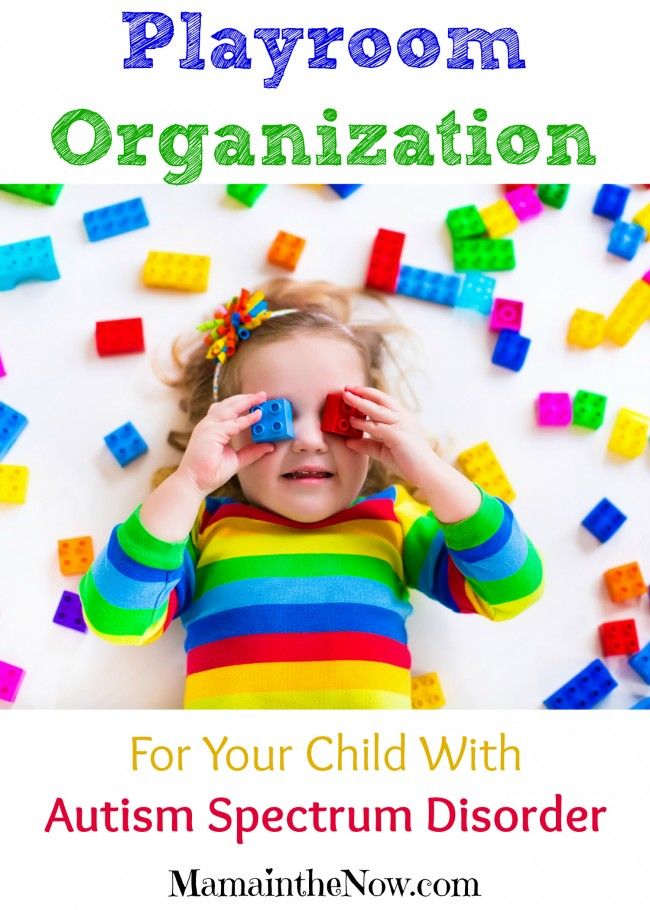 The age of diagnosis, as well as the range and severity of symptoms, can vary widely and so professional evaluation is critical.
The age of diagnosis, as well as the range and severity of symptoms, can vary widely and so professional evaluation is critical.
- CDC. Screening and Diagnosis of Autism Spectrum Disorder. Accessed 4/21/21.
- HelpGuide.org. Helping Your Child with Autism Thrive. Accessed 4/21/21.
- Autism.org. Related Disorders. Accessed 4/21/21.
Notes: This article was originally published June 16, 2021 and most recently updated January 24, 2022.
A diagnostic test that allows you to independently track the dynamics of a child's development - NGO of assistance to children with ASD "Contact"
ATEC Autism Test to assess progress and identify problems
TheAutism Test, ATEK, is used to assess progress in children with autism. Scoring is automatic.
I. Speech/Language/Communication Skills
| 1. Knows own name: YesSometimesNo | 2.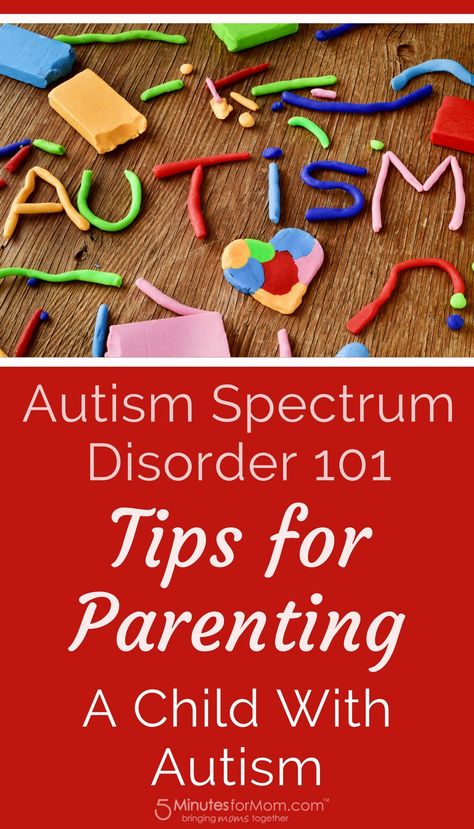 Responds to 'no' or 'stop': YesSometimesNo Responds to 'no' or 'stop': YesSometimesNo |
| 3. Can execute some commands: YesSometimesNo | 4. Can say one word: YesSometimesNo |
| 5. Can say 2 words in a row: YesSometimesNo | 6. Can say 3 words in a row: YesSometimesNo |
| 7. Knows 10 or more words: YesSometimesNo | 8. Uses sentences of 4 or more words in speech: YesSometimesNo |
| 9. Explains what he/she wants: YesSometimesNo | 10. Asks meaningful questions: YesSometimesNo |
| 11. Speech is most often meaningful/logical: YesSometimesNo | 12. Often uses sentences arranged in a logical sequence: YesSometimesNo |
| 13. Maintains a conversation: YesSometimesNo | 14. Has normal communication skills for her age: YesSometimesNo |
II. Socialization
1. Seems to be in a shell - you can't reach him/her: YesSometimesNo Seems to be in a shell - you can't reach him/her: YesSometimesNo | 2. Ignores other people: YesSometimesNo |
| 3. Doesn't pay much attention when he/she is spoken to: YesSometimesNo | 4. Not willing to work together: YesSometimesNo |
| 5. No eye contact: YesSometimesNo | 6. Prefers to be alone: YesSometimesNo |
| 7. Shows no affection: YesSometimesNo | 8. Doesn't greet parents: YesSometimesNo |
| 9. Avoids contact with others: YesSometimesNo | 10. No simulation: YesSometimesNo |
| 11. Dislikes touching/hugs: YesSometimesNo | 12. Not divided, no pointing gesture: YesSometimesNo |
| 13. Does not wave goodbye: YesSometimesNo | 14. Naughty/Naughty: YesSometimesNo |
| 15. Has fits of anger, irritability: YesSometimesNo | 16. Lack of friends/no company: YesSometimesNo |
17. Rarely smiles: YesSometimesNo Rarely smiles: YesSometimesNo | 18. Doesn't understand other people's feelings: YesSometimesNo |
| 19. Indifferent if sympathy is expressed to him: YesSometimesNo | 20. Does not respond to parental care: YesSometimesNo |
III. Sensory/Cognitive Skills
| 1. Responds to own name: YesSometimesNo | 2. Responds to praise: YesSometimesNo |
| 3. Looks at people and animals: YesSometimesNo | 4. Looks at pictures (and TV): YesSometimesNo |
| 5. Can draw, paint, craft: YesSometimesNo | 6. Plays with toys correctly: YesSometimesNo |
| 7. Facial expression appropriate to the situation: YesSometimesNo | 8. Understands what is happening on the TV screen: YesSometimesNo |
| 9. Understands explanations: YesSometimesNo | 10.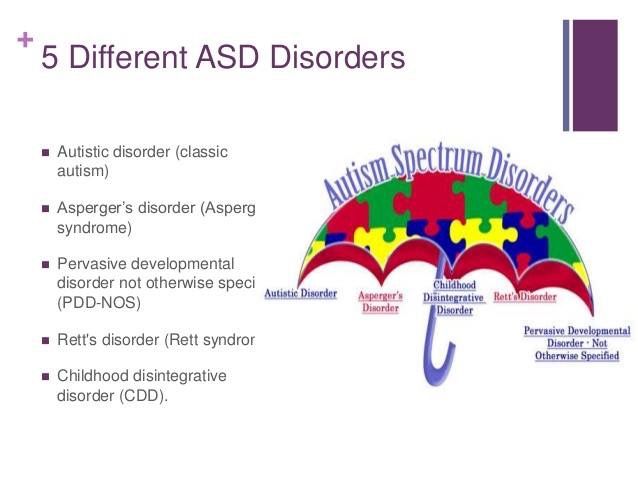 Is aware of the environment: YesSometimesNo Is aware of the environment: YesSometimesNo |
| 11. Recognizes danger: YesSometimesNo | 12. Shows imagination: YesSometimesNo |
| 13. Shows initiative: YesSometimesNo | 14. Knows how to dress himself: YesSometimesNo |
| 15. Shows curiosity, interest: YesSometimesNo | 16. Courageous - explores surroundings: YesSometimesNo |
| 17. Adequately perceives the environment, does not withdraw into himself: YesSometimesNo | 18. Looks where others are looking: YesSometimesNo |
IV. Health / Growth / Behavior
| 1. Bedwetting: Not a problem Mild problem Medium problem Serious problem | 2. Peeing in pants/diapers: No problem Mild problem Medium problem Serious problem |
| 3. Pooping in pants/diapers: No problem Mild problem Medium problem Serious problem | 4.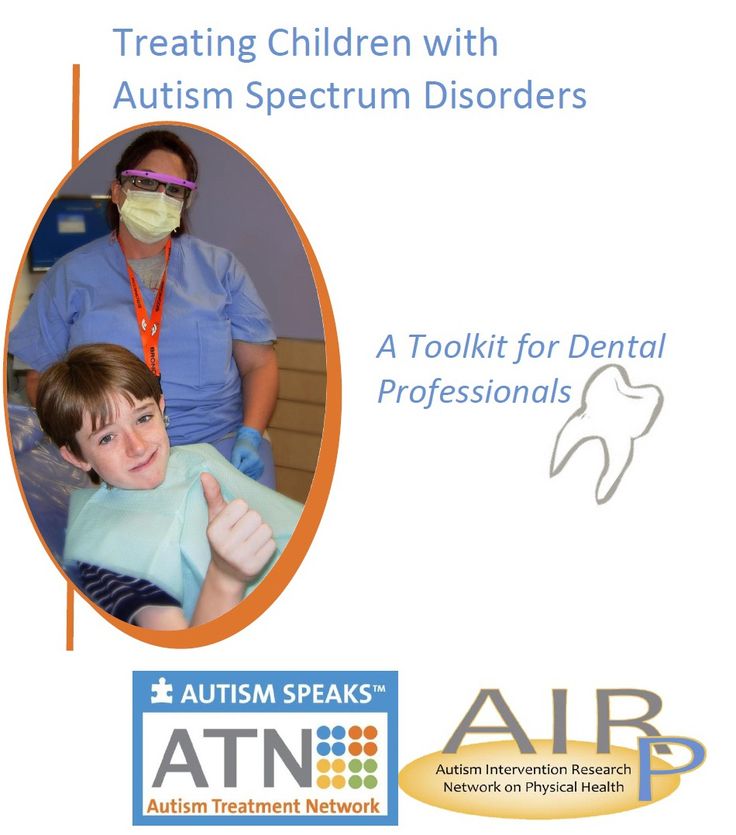 Diarrhea: Not a problem Mild problem Medium problem Serious problem Diarrhea: Not a problem Mild problem Medium problem Serious problem |
| 5. Constipation: Not a problem Mild problem Medium problem Serious problem | 6. Sleep problems: Not a problem Mild problem Medium problem Serious problem |
| 7. Eating too much/too little: Not a problem Mild problem Medium problem Serious problem | 8. Eats a very limited set of foods: No problem Mild problem Medium problem Serious problem |
| 9. Hyperactivity: Not a problem Mild problem Medium problem Serious problem | 10. Apathy: No problem Mild problem Medium problem Serious problem |
| 11. Hits or injures himself: No problem Minor problem Medium problem Serious problem | 12. Hitting or injuring others: No problem Minor problem Medium problem Serious problem |
| 13. Breaks and throws everything around: No problem Minor problem Medium problem Serious problem | 14. Sound Sensitivity: No Problem Mild Problem Moderate Problem Serious Problem |
15.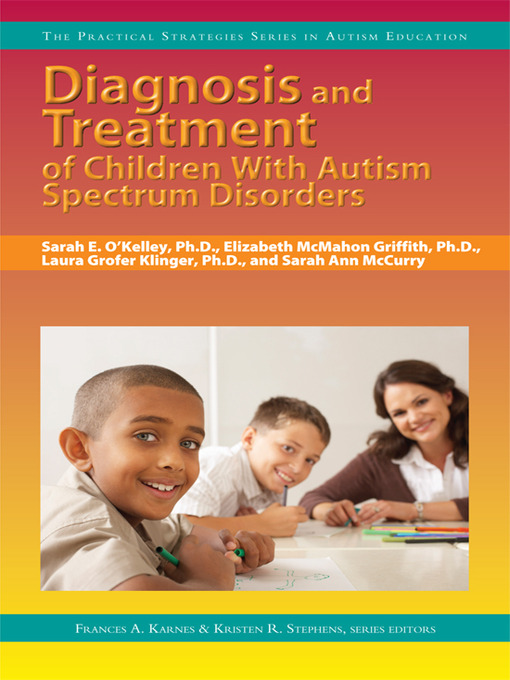 Anxiety/fear: Not a problem Mild problem Medium problem Serious problem Anxiety/fear: Not a problem Mild problem Medium problem Serious problem | 16. Depression/tears: No problem Mild problem Medium problem Serious problem |
| 17. Seizures: No problem Mild problem Medium problem Serious problem | 18. Obsessive Speech: Not a Problem Mild Problem Medium Problem Serious Problem |
| 19. Same procedure: No problem Mild problem Medium problem Serious problem | 20. Screams and Shouts: No Problem Minor Problem Medium Problem Serious Problem |
| 21. Need for uniformity: Not a problem Mild problem Medium problem Serious problem | 22. Persistent agitation: No problem Mild problem Medium problem Serious problem |
| 23. Insensitivity to pain: No problem Mild problem Medium problem Serious problem | 24. Concentration on certain subjects/topics: Not a problem Mild problem Medium problem Serious problem |
| 25. Repetitive movements: Not a problem Mild problem Medium problem Serious problem |
Outcome scale:
- 10-15 non autistic child, completely normal, well developed child
- 16-30 non-autistic child, slight developmental delay
- 31-40 mild or moderate autism
- 41-60 moderate autism
- 61 and above severe autism
The ATEC test is not a diagnostic test, but serves to evaluate progress.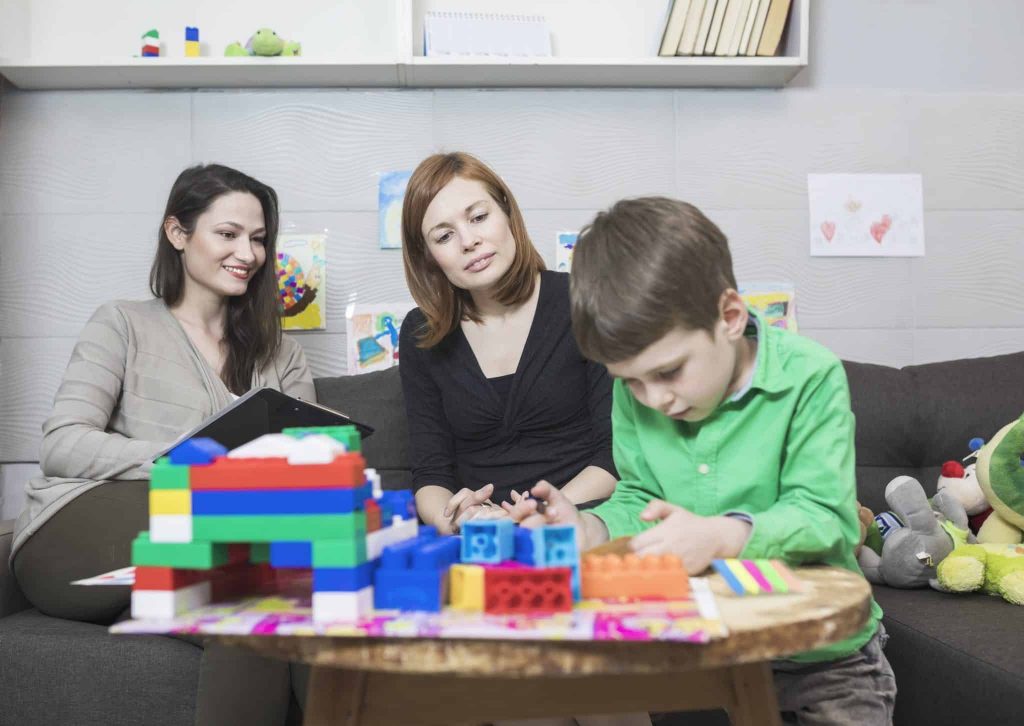 The test is not intended to confirm the presence of autism, for an accurate diagnosis, you must contact a specialist.
The test is not intended to confirm the presence of autism, for an accurate diagnosis, you must contact a specialist.
Childhood Autism Spectrum Test (CAST)
Childhood Autism Spectrum Test (CAST) - PRO AUTISM
Updated:
Reading time: 0 min.
This article is based on research, that is, it has scientific evidence. Numbers in brackets (1, 2, 3) are active links to publications of peer-reviewed studies.
Childhood Autism Spectrum Test (CAST)Read: 1,538
The Childhood Autism Spectrum Test, or CAST (formerly the Childhood Asperger Syndrome Test), is a 39-item parental questionnaire designed to screen for autism spectrum conditions.
The Childhood Autism Spectrum Test was developed by the University of Cambridge Autism Research Center to assess the severity of autism spectrum symptoms in children.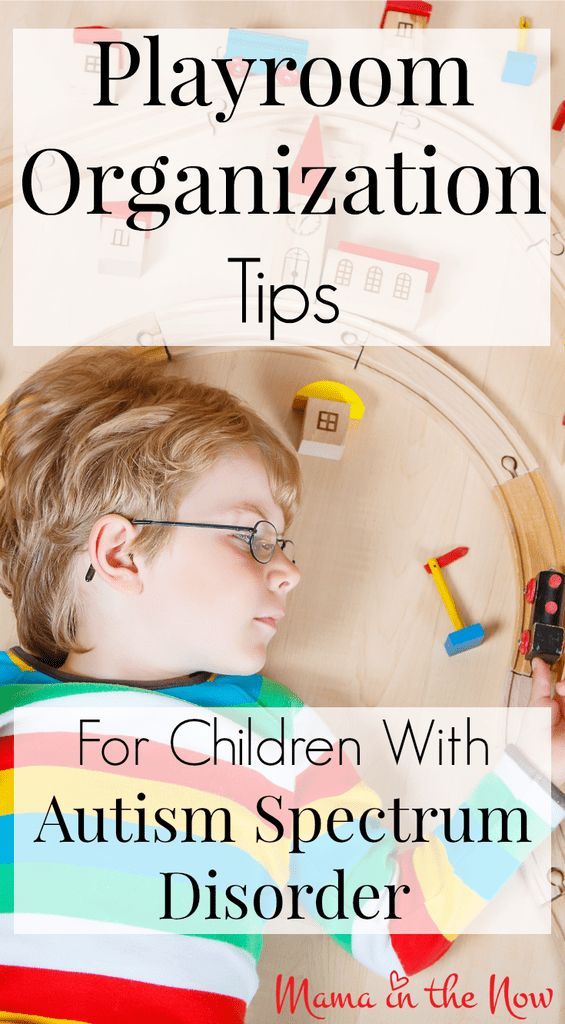
The accuracy of the test was tested on 1,925 children aged 5 to 11 in regular schools in Cambridgeshire. The sensitivity of the CAST test at the set threshold value of 15 points was 100%, the specificity was 97%.
Please read the following questions carefully and select the correct answer.
Does the child easily enter into play with other children?
- Yes
- No
Does your child approach you spontaneously?
- Yes
- No
Did the child speak before the age of 2?
- Yes
- No
Does the child like sports?
- Yes
- No
Is it important for a child to fit into a peer group?
- Yes
- No
Does the child notice unusual details that others miss?
- Yes
- No
Does a child usually take everything literally?
- Yes
- No
How much time before the age of 3 did the child play “pretend” (playing superheroes or drinking tea for a doll)?
- Yes
- No
Does the child interact easily with other children?
- Yes
- No
Does the child do something constantly, many times and in the same way?
- Yes
- No
Is the child able to maintain a dialogue?
- Yes
- No
Does the child read according to his age?
- Yes
- No
Does the child have the same basic interests as peers?
- Yes
- No
Does the child have an interest that takes up all his free time?
- Yes
- No
Does the child have friends, not just acquaintances?
- Yes
- No
Does your child often bring things to show you that interest him?
- Yes
- No
Does the child like to joke and make fun?
- Yes
- No
Is it difficult for the child to understand the rules of polite behavior?
- Yes
- No
Does the child have unusual memory features (remembering details)?
- Yes
- No
Is the child's voice unusual (too mature, without intonation, etc.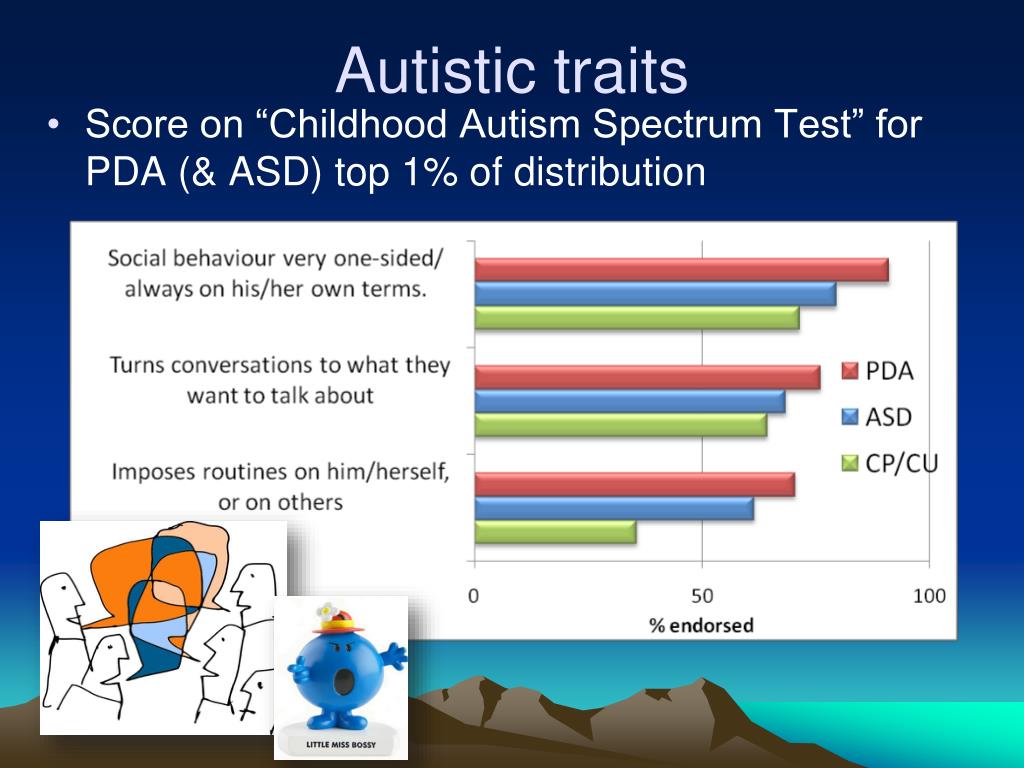 )?
)?
- Yes
- No
Are the people around you important to your child?
- Yes
- No
Can the child dress himself?
- Yes
- No
Can the child carry on a face-to-face conversation?
- Yes
- No
Does the child play pretend with other children and take part in role play?
- Yes
- No
Does the child often speak or behave in inappropriate or socially inappropriate ways?
- Yes
- No
Can the child count to 50 without losing count?
- Yes
- No
Can the child maintain normal eye contact?
- Yes
- No
Does the child have unusual or repetitive movements?
- Yes
- No
Is the child's social behavior very one-sided and always conforms to his own rules?
- Yes
- No
Does a child ever talk about himself in the third person?
- Yes
- No
Does the child prefer activities that require imagination (such as telling stories or acting out skits) to memorizing numbers or facts?
- Yes
- No
Does it happen that a child stops listening to an interlocutor because he does not understand what is being said?
- Yes
- No
Can the child ride a bicycle (with assistance)?
- Yes
- No
Does the child impose any activity on himself or on others in a way that causes problems?
- Yes
- No
Does it matter to the child how he or she is perceived by others in the group?
- Yes
- No
Is the child more likely to turn to a conversation about his favorite subject than to support a conversation about what other people are interested in?
- Yes
- No
Does the child have repeated or unusual words/phrases?
- Yes
- No
Send
Retest
Designed by:
- J.
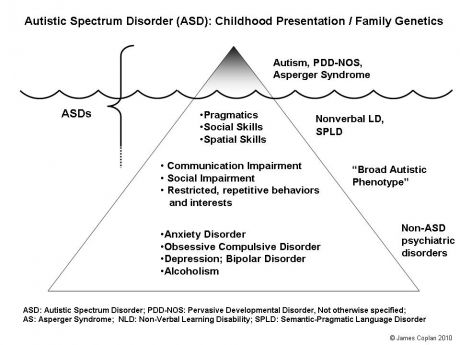
Learn more




